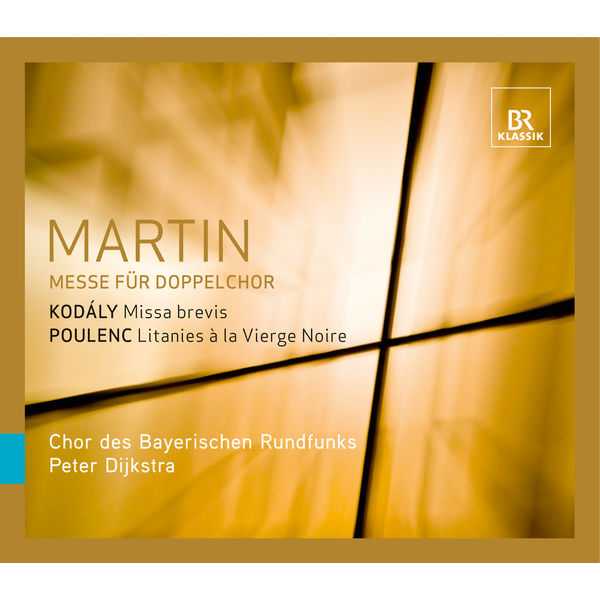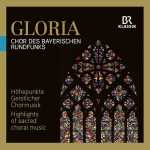
Composer: Zoltan Kodály, Frank Martin, Francis Poulenc
Performer: Max Hanft, Chor des Bayerischen Rundfunks
Conductor: Peter Dijkstra
Format: FLAC (tracks)
Label: BR Klassik
Catalogue: 403571900500
Release: 2009
Size: 239 MB
Recovery: +3%
Scan: yes
Martin: Mass for Double Choir
01. Kyrie eleison
02. Gloria
03. Credo
04. Sanctus
05. Agnus Dei
Kodály: Missa brevis
06. Introitus
07. Kyrie
08. Gloria
09. Credo
10. Sanctus
11. Benedictus
12. Agnus Dei
13. Ite, missa est
14. Poulenc: Litanies à la Vierge noire
Dutch conductor Peter Dijkstra leads Chor des Bayerischen Rundfunks in a luminous performance of three classics of twentieth century sacred choral music. Frank Martin’s a cappella Mass for two mixed choirs is one of the most demanding modern works for chorus, not for its harmonic or rhythmic complexity, but because its transparency requires absolute precision in pitch — a genuinely daunting task in an a cappella work lasting almost half an hour — as well as exceptional stamina, focus, and nuanced musicality. Chor des Bayerischen Rundfunks is fully successful in delivering on the work’s technical demands and also turns in a performance of great purity and subtlety. The choir’s intonation is immaculate and its blend is radiant and warm. Dijkstra leads the group with expressive suppleness of phrasing, tempo, and dynamic shading. At its quietest, the choir’s tone emerges almost imperceptibly out of silence, but the singers can also produce a powerfully full sound, as at the closing of the Sanctus. Kodály describes his work as a Missa Brevis even though it includes all the text of a full mass, including the credo, as well as an Introitus and Ite, missa est. Written in the midst of the Second World War and scored for mixed choir and organ, it is overall an earthier, more conventional and less integrated setting than Martin’s, but its pleas for mercy and peace are especially heartfelt, and its sections for solo voices are particularly lovely. Poulenc’s Litanies à la Vierge Noire, for women’s voices and organ, is one of the composer’s earliest sacred choral pieces, but it already shows the distinctively sensuous harmonic and melodic tendencies that characterize many of his works in that genre. While the Kodály and Poulenc don’t rise to the level of transcendence of the Martin Mass, the choir brings to them the same skill, sensitivity, and commitment. BR Klassik’s SACD sound is clean and present, with a warm ambiance.
“Widely regarded as one of the world’s finest small professional choirs” (musicweb- international.com), “one of the best professional choruses on the international scene” (klassik-heute.com), “moments, which in their musical culture make the ensemble truly unique” (Münchner Merkur) – these comments and similar ones show that the Chor des Bayerischen Rundfunks is a leading figure in the world of choral music.
Frank Martin was on the program of Peter Dijkstra’s inaugural concert in October of 2005, when he – an authentic shooting star on the choral scene – assumed the direction of the Chor des Bayerischen Rundfunks at the sensationally young age of 0nly 26. The same composer is now also featured at the beginning of a-cappella production for the BR-KLASSIK label, on which the chorus presents itself under its director Peter Dijkstra. Frank Martin’s Mass for Double Chorus, which was not given its world première until 40 years after it was composed, has nevertheless ranked since then as one of the Swiss composer’s major works. Zoltán Kodály’s Missa brevis is directly marked by powerless despair over the horrors of World War II. Francis Poulenc’s Litanies à la Vierge Noire was prompted by a far more personal motivation. He composed the work on the death of his composer friend Pierre-Octave Ferroud in 1936, a short time after Poulenc had found his own way to religion on a pilgrimage.



